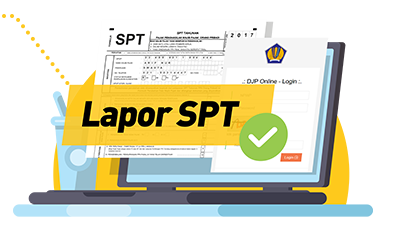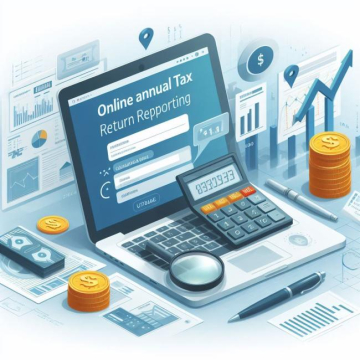There is no business activity, is there an obligation to report SPT?
Fulfilling tax obligations is something that taxpayers should not forget. Administrative sanctions await for non-compliance in fulfilling tax obligations. Even non-compliance, which some people consider minor, can result in sanctions that are quite burdensome for taxpayers.
Being (only) one day late in reporting the Value Added Tax (VAT) Notification Letter (SPT) causes the taxpayer to be subject to a penalty of five hundred thousand rupiah for each late tax period. Imagine if a taxpayer is late or does not report the Periodic VAT SPT for 12 months in one year, the taxpayer must be prepared to dig into their pockets to pay an administrative penalty of six million rupiah.
This tax obligation is attached to all taxpayers without exception. Whether they realize it or not, it turns out that there are still taxpayers who think that tax obligations are only carried out if the taxpayer has active business activities and/or earns income. As a result, there are still corporate taxpayers and/or individual entrepreneurs who no longer report SPT when their business activities are no longer running.
"My business is no longer running, why do I still have to report SPT, sir?" a taxpayer asks the tax office's account representative regarding the issuance of a Tax Collection Letter (STP) because he has not yet reported the SPT. "If I had been informed beforehand regarding the obligation to report taxes for taxpayers who have no business activities, I would have still reported the SPT, sir," continued the taxpayer.
Obligation to Report SPT
Reflecting on the self-assessment tax system that applies in Indonesia, taxpayers are given the trust and opportunity to calculate, pay and report their own taxes which are the taxpayer's obligations. This is the main thing that taxpayers must be aware of when registering themselves as taxpayers for the first time.
When registering as a member of an association, part of an organization, or user of services from a business entity, I will usually ask and look for information regarding the rights and obligations related to my membership. I realize that these rights and obligations will remain as long as I am still a member or service user.
A simple example is when I first registered to become a customer of a bank, I was used to asking about the administration fees that I had to pay every month and other obligations that I had to carry out. I ask for information about the rights I get, such as profit sharing or interest that I will receive. I also asked for a telephone number that I could contact as a means of complaints and information for customers.
This kind of understanding concept should also be ingrained in taxpayers from the first time they register and obtain a Taxpayer Identification Number (NPWP). This is also the logic of thinking of taxpayers, although in practice this understanding is realized not only because taxpayers actively seek information. There is a responsibility of tax officers to inform taxpayers of their rights and obligations, especially for new taxpayers.
The question that then arises is what if the taxpayer's business is no longer running? Or in other words, what if the taxpayer no longer has income.
Non-Effective or Delete NPWP
Judging from the existence of taxpayers and the fulfillment of tax obligations, there are two statuses of taxpayers registered with the tax office, "active" and "non-effective". Active taxpayers are not only taxpayers who are still carrying out business activities and earning income. Taxpayers who no longer have business activities but have not submitted a non-effective application and are designated as non-effective taxpayers will remain registered as active taxpayers. These active taxpayers are bound to fulfill tax obligations, including SPT reporting.
When a taxpayer has non-effective status, the taxpayer is no longer bound by the obligation to report SPT, both Periodic SPT and Annual SPT. However, this taxpayer is still registered with the tax office. The obligation to report SPT arises again when the status changes back to active. Changing status to active can be done through a taxpayer request or automatically through the Directorate General of Taxes (DJP) system. When the DGT system detects a payment or tax report made by a non-effective taxpayer, the taxpayer's status automatically changes to active.
This provision applies to corporate and individual taxpayers. This means that corporate and/or individual taxpayers who no longer have income or have business activities can apply to become non-effective taxpayers.
One thing that is sometimes forgotten is that taxpayers cannot submit a non-effective application while still being a Taxable Entrepreneur (PKP). In this condition, the taxpayer must submit a request for PKP revocation first before submitting a non-effective request. Before the PKP revocation application is approved by the tax office, taxpayers must still report a Value Added Tax (VAT) SPT.
The next question is, if the taxpayer no longer has business activities, is it permissible to apply for the deletion of the NPWP. The answer is yes, for corporate taxpayers. Why?
The subjective tax obligations of a domestic business entity end when the business entity is dissolved. So, if the business entity has indeed been dissolved (there are supporting documents for the dissolution), then the taxpayer can apply for the deletion of the NPWP.
In contrast to business entities, the subjective obligations of an individual cease when the individual dies or leaves Indonesia forever.Thus, individual taxpayers who still have subjective tax obligations cannot apply for NPWP deletion even though they no longer have business activities and/or income.
It is important to remember that there are tax obligations that accompany the taxpayer from obtaining a NPWP. An understanding of these tax obligations must be possessed by all taxpayers. Tax officers have a responsibility from an educational aspect in instilling an understanding of tax obligations. This understanding is needed not only from the time the taxpayer is registered, but also beforehand. If possible, it would be very good if an understanding of taxes was given to the public from school age.Early understanding of tax obligations will be a crucial point in tax awareness which will lead to increased tax compliance.
More at: https://stats.pajak.go.id/id/article/tidak-ada-kegiatan-usaha-besarkah-lapor-spt



